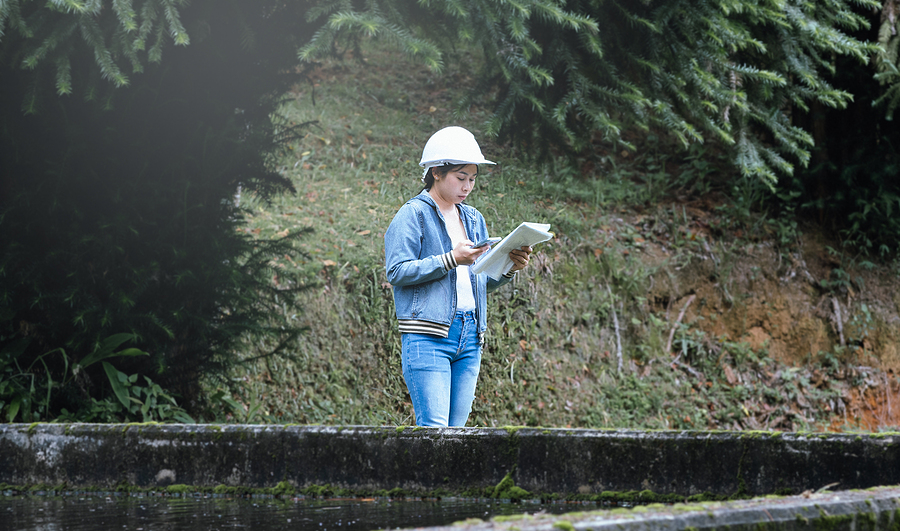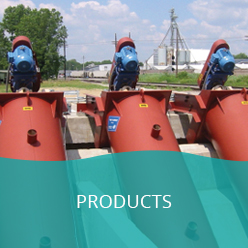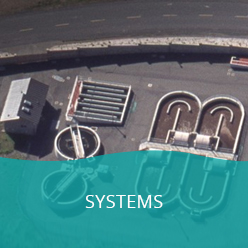Clogged pumps in a sewer and wastewater system aren’t new issues, but they have been increasingly frustrating to districts across the nation. The main issues tend to be sanitary wipes that are marketed as flushable that do not break down in the water as quickly as advertised. Double- and triple-ply toilet papers, paper towels, and facial tissues also don’t disintegrate quickly.
Consumers purchase the items thinking they’re flushable and will dissolve in their wastewater, but they don’t. They build up in pipes, get caught around pumps in the equipment, and lead to blockages that can become costly as sewer and wastewater workers need to locate the blockage and remove it. In South Carolina, a blockage required divers at the cost of $140,000, and that cost ends up driving up prices for households and companies in that municipality.
Recent Clogs That Led to Costly Problems
Back in August, the Lewes-Rehoboth Canal in Delaware was flooded with upwards of 8,000 gallons of raw sewage. Why? A pump station in Lewes developed a clog that caused tremendous issues. At the heart of the clog were unflushable items like baby wipes.
As the clog built in both the lead and secondary pipes, a backup pump took over, but that pump also failed. The sewage backed up into pipes leading to a backflow situation that caused a cleanout lid to open. Sewage then entered the canal. It took workers about six hours to correct the situation.
A few months later, officials in Chaska, Minnesota, posted a picture of a shredded cotton towel that clogged a pump. Lift stations that usually get cleaned every three months were cleaned four times in one week due to clogs.
Why a towel was flushed down a toilet is unknown, but the city made it a goal to inform the public that paper towels, baby wipes, “flushable wipes,” tissues, and menstrual products should not be flushed as they do cause clogs.
The North Charleston Sewer District in South Carolina recently had to bring this issue up again. Not only is this sewer district dealing with baby wipes and flushable wipes that have been flushed down the toilet, but those wipes are mixing with the grease that people are pouring down sinks and solidifying in the sewer lines.
It’s clear that this is an issue that’s occurring across the country. What can sewer districts and wastewater treatment plants do to help put an end to clogs at pump stations?
Educate Those in Your District
You can’t always control what people flush, but they may not know what they are doing is driving up prices. Raise awareness. One of the first steps is to educate the people in your wastewater and sewer district. People see the term flushable and don’t realize that these wipes do not disintegrate as well as advertised
Go on social media and publish pictures of the clogs. If people see how these wipes do not break down effectively, it helps them understand the issues they’re causing. Make it known that it’s best to throw these wipes into the trash.
People may not pay attention to postcards or flyers you place in the mail. But, they may catch ads on Facebook or YouTube, if you have that budget available. Hold an open house with tours of your facility, if possible, and spread the word that way.
Make sure you bring up the different items that are marketed as septic-safe but aren’t. Wipes are just one item that are marketed as flushable but cause problems in sewers and wastewater treatment plants. Tampons, “flushable” cat litter, and toilet bowl scrubbers are other items that do not break down, even though it says they’re septic-safe products.
It’s also useful to point out the risks of untreated sewage being leaked into waterways. If you’re near an ocean, the area shellfish becomes contaminated and is no longer safe to eat. Lakes are exposed to high levels of bacteria and nitrogen, which makes lakes unsafe to swim in and can cause algae blooms to thrive.
Charleston, South Carolina’s District Filed a Lawsuit
South Carolina’s Charleston Water System took a surprising, yet logical step. After spending more than $300,000 to fix blockages and pump failures, they filed a lawsuit against manufacturers and retailers marketing wipes as being “flushable.” Consumers see that a wipe is flushable and don’t realize the damage it can cause to wastewater treatment systems. These flushable wipes and other flushable products like “flushable” cat litter do not disintegrate as people expect.
Kimberly-Clark was the first company to offer a settlement with Charleston Water System. The company is working on a new design to ensure the wipes disintegrate faster.
Upgrading Equipment Helps
Another step a wastewater district and sewer system can do is make sure older equipment is upgraded. Go through your system’s equipment and see how old the pumps, screens, trash rakes, and other components are. Modern equipment may be more effective at removing items that cause blockages. Sometimes, additional screens or more efficient trash rakes can help.
If your district doesn’t have grinder pumps, they can make a big difference. The pumps grind materials, which reduces the risk of a blockage. Grinder pumps work at slow speeds with high torque to grind up items like flushable wipes and cat litter, menstrual pads, paper towels, rags, and things that shouldn’t be flushed.
Another option would be a rotating drum screen. They’re great at capturing finer particles from wipes and tissues that have broken down some and impact wastewater treatment processes. The screenings caught in a rotating drum are compacted, dewatered, and spray washed to remove organics and water that continues to the next stages of wastewater treatment.
Talk to the Experts in Wastewater Treatment Equipment
It helps to discuss possible upgrades with an expert in wastewater treatment systems. Engineers understand the best ways to come up with ways to prevent future issues. It may be upgrading your equipment or adding equipment that helps lower your energy bills, which balances out the cost of the new screens, pumps, etc.
When you’re moving wastewater, Archimedean screw pumps offer non-clog designs. These systems can be open or closed and are easy to maintain. Because the design helps prevent clogs, you don’t have to pre-screen wastewater. They’re a good choice for wastewater treatment plant lift stations.
Raptor screen products screen, wash, dewater, and compact waste at one time. The stainless steel construction provides longevity, while the all-in-one design handles several components of wastewater treatment at once.
Depending on the capacity of your system and the number of residential and business customers using your system, the best solution will vary. The experts at Lakeside Equipment are happy to discuss the issues you’re having and the best possible solutions. We’ll work with your budget and come up with designs and equipment that lower the risks of blockages and raw sewage releases. Call us to learn more.








